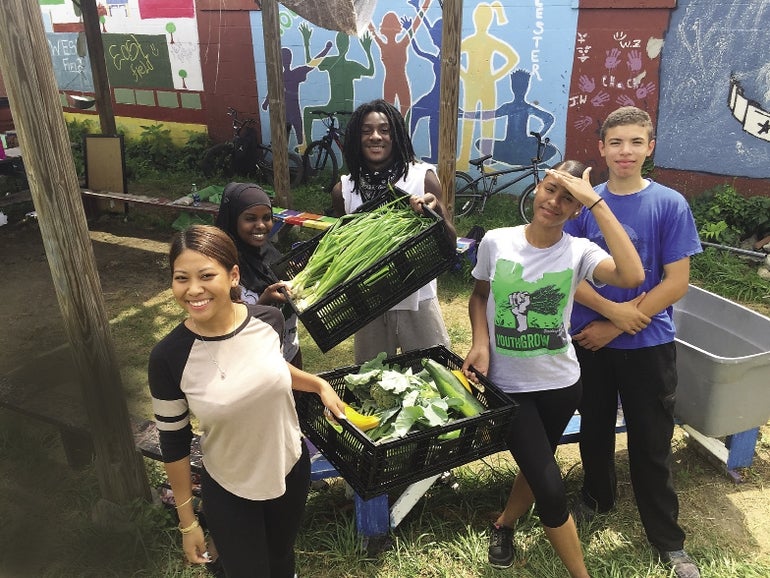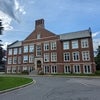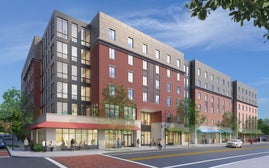Worcester could create zoning for urban farms
 PHOTO/COURTESY
The Regional Envionmental Council of Central Massachusetts uses urban farms through its YouthGROW program. Pictured are program members (from left) Jennifer Nguyen, Mulki Abdi, Robert Jackson, Carol Himenez and Kelvyn Pacheco.
PHOTO/COURTESY
The Regional Envionmental Council of Central Massachusetts uses urban farms through its YouthGROW program. Pictured are program members (from left) Jennifer Nguyen, Mulki Abdi, Robert Jackson, Carol Himenez and Kelvyn Pacheco.
Amanda Barker has seen a transformation in Worcester, and it has nothing to do with the city's colleges or restaurant scene.
A Leicester resident who works in Worcester, Barker has been working in urban agriculture in the city since 2009, when, as a Clark University grad student, she co-founded Nuestro Huerto, a quarter-acre farm that sells to members of its community-supported agriculture, or CSA, program.
Baker said she's seen a subculture grow into a sustainable industry.
“I've shown it's possible to generate revenue on a small plot of land in the city of Worcester without performing miracles,” she said at a City Council meeting in April.
But the budding industry needs institutional support, Barker said.
City officials, after years of consideration, may finally soon fill that role.
Providing greenery
City Manager Ed Augustus has proposed new zoning regulations that would allow urban farming in residential neighborhoods automatically or by special permit. Today, agriculture is allowed only in non-residential zones.
If the proposal is approved, farmers would be allowed to sell their produce onsite if they obtain a farm-stand permit. Residential-use farms would be limited to 2,500 square feet – or about 1/20th of an acre – to ensure they keep a more neighborhood-friendly scale. Larger community gardens could be double that size. Livestock would still be prohibited.
Proposal advocates include the Worcester County Beekeepers Association.
Mary Duane, the association's president, said urban farms provide important of greenery in the city.
“Without honeybees and pollinators, we won't have our lovely gardens here in Worcester,” she said.
Figuring out the details
Councilors wondered whether farms would become retail operations and attract more traffic than residential neighborhoods are meant for, or whether there would have to be regulations on water use or loud equipment.
“I don't think people are taking up farming for profit, unless they think they can make a living off it,” Councilor Morris Bergman said.
City officials will figure out those details, Augustus said. The city manager took a lighthearted response to the concerns, joking, what could go wrong if your neighbor has a swimming pool?
Capturing a cultural moment
A lack of proper zoning hasn't dissuaded farming from taking root in the city anyway.
The Regional Environmental Council, a Worcester organization with a farmers market and the Regional Food Hub incubator, has six urban farms, 30 community gardens and 27 school gardens in the city, said Executive Director Steve Fisher. It started with just three gardens in 1995.
“It's a real cultural moment,” he said.













0 Comments